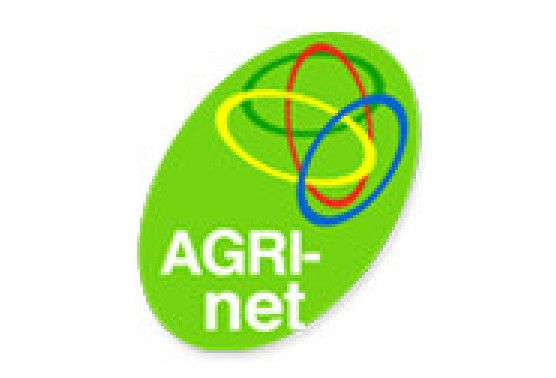Agri Futures Conference
27 September 2016
Organised by Imperial College PhD students working at the interface between the physical and agri-sciences, the Agri Futures conference showcased the latest technological developments in chemical biology from world leading researchers in their fields.
Held at the prestigious Royal Society of Chemistry building in London's Picadilly, the conference hosted plenary talks from world-leading chemical biology researchers from Cellzome (Germany), the University of Trento (Italy), University of Tubingen (Germany), University of Oxford (UK) and Wageningen University (Netherlands) and engaged high profile academics, policy makers and industry researchers in an open debate on whether young people are under-represented in agriculture.
New AGRI-net film published on the need to prioritise research in Crop Sustainability
20 August 2016
A short film prepared by AGRI-net has now been published on our website!
Involving representatives from industry (Syngenta & Bayer CropScience), research institutes (John Innes Centre & Rothamsted Research) and academia (Imperial College London, the University of Nottingham, Aberystwyth University & the University of Warwick), the film highlights the need to prioritise and support research targeted at one of the world’s grand challenges, Crop Sustainability.
We hope you enjoy watching it!
5th International Plant Chemical Biology Conference
15 May 2016
The 5th AGRI-net International Plant Chemical Biology conference continued to stumulate collaborations between the chemical biology and agri-science research communities drawn from academia and industry. This one-day meeting provided a forum for the exchange of ideas and approaches to tackle challenges in sustaining and protecting food and fibre production.
Held on Friday 13th May 2016 at Syngenta’s International Research Centre in Bracknell, Berkshire, the meeting covered a wide spectrum of research, with talks from Aberystwyth University, John Innes Centre, Rothamsted Research, the University of Oxford, the University of Warwick, Cranfield University, Royal Holloway University and EMBL-EBI. The conference also welcomed poster contributions from both the chemical biology and agri-sciences communities.
New report from Thomson Reuters highlights how we feed 9 billion people in 2050
11 August 2015
How will we feed 9 billion people in 2050?
If we are to meet the hungry demands of our future, we need a revolution in the way we produce and deliver food.
An estimated 805 million people will go to bed hungry tonight. “Hidden hunger” – or micronutrient deficiency – affects a further 2 billion. But in 2050 the global population is expected to reach 9 billion, and to accommodate this growth we must nearly double our current output of food, feed, and fiber.
9 Billion Bowls is a multimedia report from Thomson Reuters that tells the story of a growing revolution: a diverse group of scientists, students, analysts and inventors turning insights into innovation at every link in the food supply chain. Using Big Data and leading edge technologies in entirely new ways to confront the hungry demands of our future.
Soil Health & Management: Events to kick off the Sainsbury's Farming Scholars Programme
19 May 2015
The Sainsbury's Farming Scholars Programme is a one-year programme created in partnership with Imperial College London and AGRI-net, which enables farmers and growers that supply Sainsbury’s, to explore a common theme critical to the future success of their businesses: Soil Health & Management.
In the first week of the programme (28th April - 1st May 2015), the Farming Scholars attended a week of events organised with Imperial College London and AGRI-net. This included a one day soil science workshop, a visit to Syngenta's International Research Centre, an Agriscience in the media science communication course and soil sample testing at the Natural History Museum.
New report from Thomson Reuters highlights how we feed 9 billion people in 2050
11 August 2015
How will we feed 9 billion people in 2050?
If we are to meet the hungry demands of our future, we need a revolution in the way we produce and deliver food.
An estimated 805 million people will go to bed hungry tonight. “Hidden hunger” – or micronutrient deficiency – affects a further 2 billion. But in 2050 the global population is expected to reach 9 billion, and to accommodate this growth we must nearly double our current output of food, feed, and fiber.
9 Billion Bowls is a multimedia report from Thomson Reuters that tells the story of a growing revolution: a diverse group of scientists, students, analysts and inventors turning insights into innovation at every link in the food supply chain. Using Big Data and leading edge technologies in entirely new ways to confront the hungry demands of our future.
7th International meeting on Pesticide Resistance 14th September 2015
8 May 2015
The 7th International Meeting on Pesticide Resistance held at Rothamsted Research Institute, Harpenden, Herts, UK, will showcase the latest work on resistance to insecticides, fungicides and herbicides. To express interest/request futher information please email rres.resistance@rothamsted.ac.uk.
Help map the Agri-science and Physical Science Landscape by completing a short questionnaire
5 August 2014
AGRI-net would like to create a greater understanding of the degree of cohesion between the Agri- and Physical Science communities, by identifying the capacity and capability from both an academic and industrial perspective. We will also report on the major challenges/bottlenecks that are currently limiting the agri-sciences, and highlight examples of tools and technologies that could be applied to address one of the world’s grand challenges, crop sustainability. AGRI-net would like to draw upon your knowledge, expertise and opinions by inviting you to complete the online questionnaire.
BioResources Young Researchers in Agrisciences 2014
22 May 2014
University of Reading, Whiteknights Campus, Reading, UK
Thursday 03 July 2014
Organised by SCI’s BioResources Group
To book for this event, please scroll down page to "book me on event" button.
Synopsis
This event is for early career scientists working in biological, chemical, environmental and other relevant sciences and all interested in learning about progress and meeting new talent in agrisciences.

Contact
For website related questions please contact agri-net@imperial.ac.uk.
For any other enquiries please contact Dr. Laura Barter at l.barter@imperial.ac.uk.